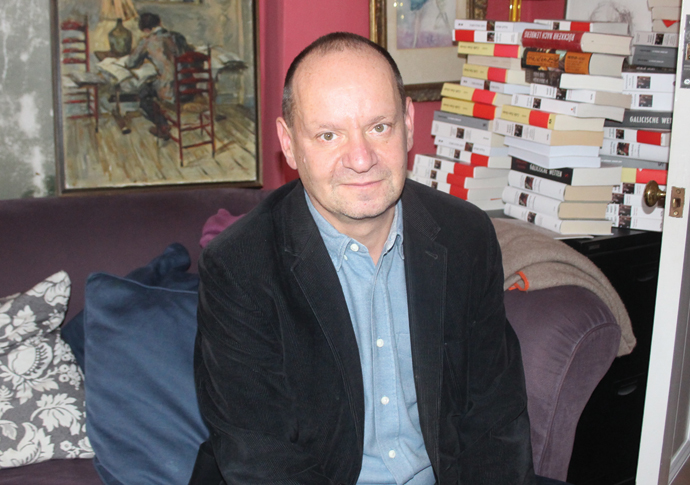International justice: playing the long game
Dan Carrier talks to Prof Philippe Sands about how lessons from the past can be applied to today’s ills
Thursday, 27th January 2022 — By Dan Carrier

Professor Philippe Sands
REMEMBRANCE is both a way of marking the lives murderously cut short and ensuring that the cold facts of what happened are recognised. It also means remaining vigilant, and ensuring warning signs from the past are heeded in the present.
Professor Philippe Sands, a lawyer based at Matrix Chambers in Lincoln’s Inn, has specialised in international law – and acted against those who are accused of committing genocide and crimes against humanity.
Next month, he will be appearing at the International Criminal Court in the Hague to represent the Gambian government in a case that focuses on claims that the Republic of Myanmar committed genocide against the Rohingya community. Professor Sands will lay out evidence that shows how Myanmar’s soldiers attacked a distinct Muslim minority – attacks that were marked by unimaginable brutality and extreme violence.
His expertise in international law and crimes against humanity allows him to draw a clear line back to the Holocaust and the response.
“Nineteen forty-five and Nuremberg was a revolutionary moment,” he says. “It established the principle that the power of the state was not absolute, and those that engage in wrongdoing are liable to investigation and prosecution for crimes against humanity and genocide.”
After the Nuremberg trials, which saw senior Nazis held to account for their unfathomably evil acts, international law developed slowly – until the 1990s.
“For about five decades after that not much happened,” says Prof Sands. “Then in the mid-90s the horror of Yugoslavia and Rwanda caused the UN Security Council to create two new international criminal tribunals. Three years later, in 1998, the world agreed to establish an international criminal court based in the Hague.”
There was change in the air. The then Labour government had a foreign secretary, Robin Cook, who said ethics, the sanctity of international law and a non-negotiable concept of universal human rights, meant criminals could no longer attempt to excuse their behaviour by cloaking it in a guise of state legitimacy.
“Nineteen ninety-eight was a big year – it was the year that saw [Chilean dictator] General Augusto Pinochet arrested in London for crimes against humanity and genocide. The arrest warrant was signed by a Hampstead magistrate, who was on duty at the time, called Nicholas Evans.”
A Spanish magistrate had issued a warrant for Pinochet’s arrest for the murders and oppression he was responsible for after the coup against the democratically elected President Salvador Allende in 1973.
In Europe, another man behind mass murder was feeling the power of international law.
“In 1998, Slobodan Milošević became the first serving head of state to be indicted for crimes against humanity and genocide,” adds Prof Sands. “These developments are directly related to what happened at Nuremberg.”
Despite these precedent-setting victories, a maelstrom of politics, resources, investigations and the gathering of evidence and following due process means the pursuit of criminals acting as state agents faces obstacles, barriers and challenges.
“International justice is a long game,” says Prof Sands. “It is often a case of two steps forward, one step sideways, another step backwards and then one step forwards again. Some crimes go unpunished – but there is an embryonic system of international justice. I say the system is far from perfect. But it is a lot better than nothing, and we have come along way since 1945.”